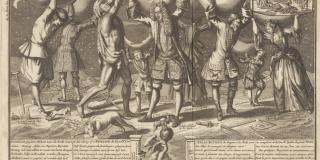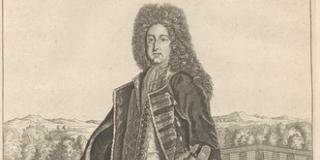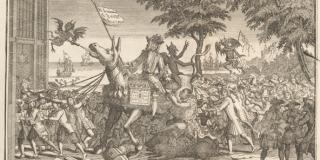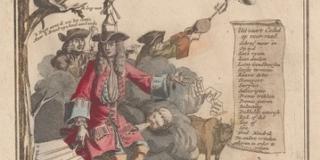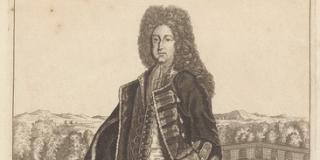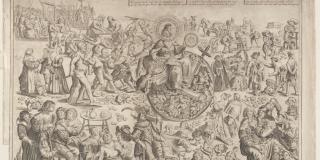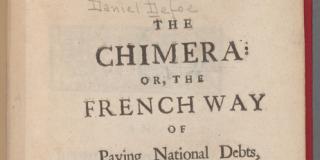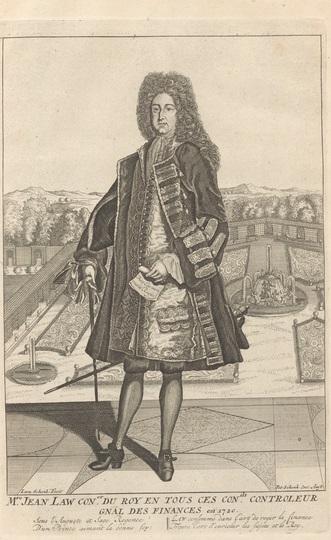
Leonard Schenk (Dutch, 1696–1767) and Pieter Schenk II (Dutch, 1700–1750); Mr. John Law, King’s Councilor in All Affairs, Controller-General of Finances in 1720; 1720; etching and engraving, Miriam and Ira D. Wallach Division of Art, Prints, and Photographs
John Law, Rakish Financier
The undisputed star, or villain, of The Great Mirror of Folly is John Law (1671–1729), the Scottish gambler-turned-financier who masterminded the Mississippi Bubble scheme. In the volume’s prints, he appears in a variety of guises: standing tall and proud in a French royal garden; struggling to ride a dyspeptic donkey; and impersonating a bowling ball.
In life, too, Law was a mercurial figure. Born into a family of goldsmiths, he studied banking but preferred the world of high-stakes gaming, and had to flee England after killing another man in a duel. With his matinee-idol good looks and wicked intelligence, he managed to recover from this scandal and charm various European heads of state; eventually he persuaded France’s regent to let him take over the kingdom’s finances and establish the Company of the Indies. Even today, some economists are divided on whether Law was a financial genius or a charlatan. But most agree that his radical plan, or “System,” to restructure France’s debt, tax, and trade policies failed as a result of his outsized ambition rather than unsound ideas. In fact, several of Law’s financial and commercial innovations anticipate our own modern world economy and are still in use today. Though the creators of The Great Mirror of Folly clearly brand Law a scam artist, they also convey his charisma and ability to instill a sense of confidence and belief—emotions essential to all monetary transactions.
